Any woman can testify that mammograms are at best unpleasant and at worst painful.
But this gold-standard imaging modality for breast cancer screening has additional drawbacks: It exposes the woman to ionizing radiation, has limited accuracy in patients with dense breast tissue and results in many false positives, leading to unnecessary biopsies.
Well, here’s some hopeful news: Israeli startup ThermoMind is developing a thermal-sensor-based, contact-free, radiation-free screening modality for detecting early-stage breast tumors.
The idea of using thermography isn’t new. It’s known that even the earliest cancerous growth causes increased blood flow at warmer temperatures and additional blood vessel formation to feed the malignancy.
“Thermography was in the market since 1982 and a lot of research was done but nothing came of it,” says cofounder Najeeb Ayoub. Unfortunately, the technology just wasn’t advanced enough.
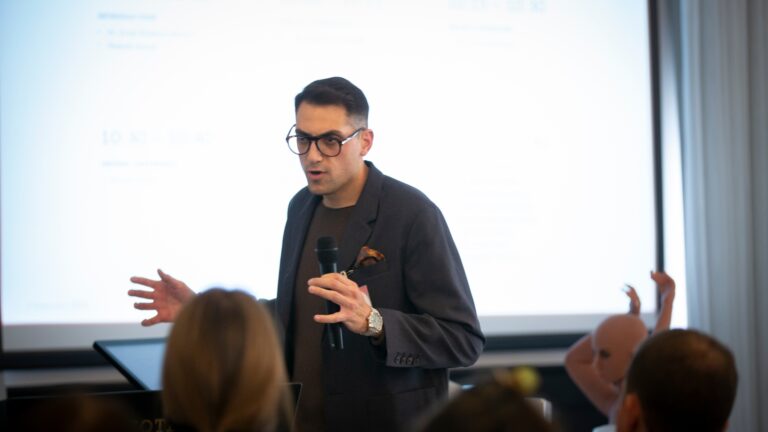
“Researchers knew that changes in thermal patterns show there are changes in vascularity in cancer and can help determine the stage of cancer as well,” says cofounder Larisa Adamyan.
“Today, when computer vision is at its peak, we have very sensitive sensors and know how to work with them. We decided we need to unleash this technology’s full potential.”
Beginning clinical trials
Fifteen ThermoBreast devices are being built to be deployed for clinical trials starting this summer in 11 hospitals in the US, Europe, Israel. Some 28,000 participants are to be screened over the next three years.
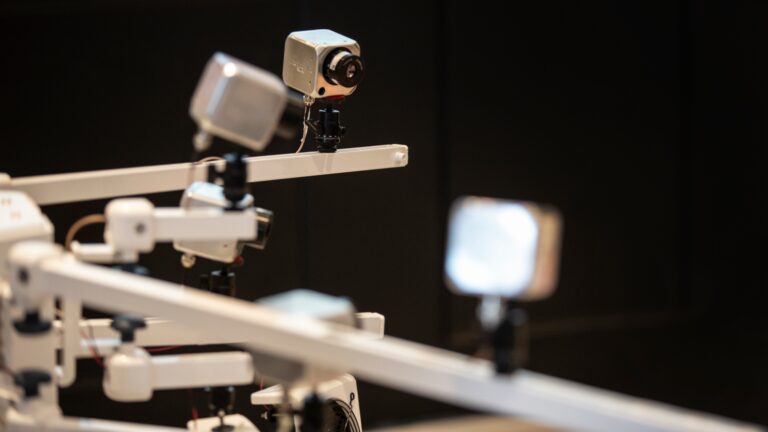
ThermoMind’s technology is based on Israeli infrared sensors developed by market leader SCD for the homeland security and defense industry.
“Our challenge was to adjust this technology for thermal imaging in healthcare, which now any other healthcare company can access,” says Ayoub.
“We are getting the best signal from the best and most accurate sensors in the world, and then comes the AI which will analyze it,” adds Adamyan.
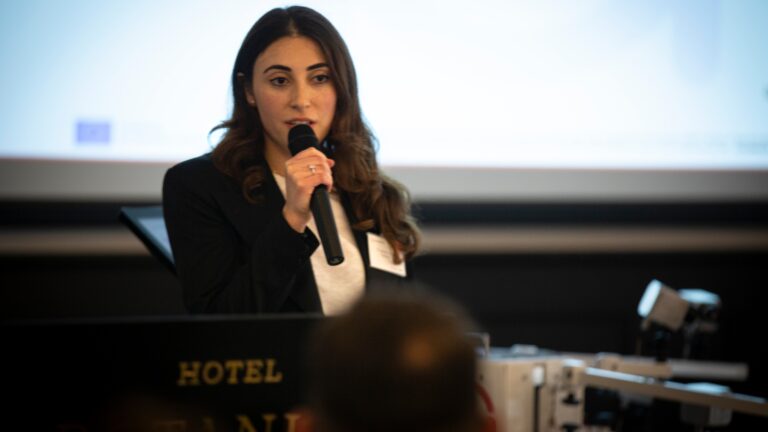
She says the technology identifies thermal signs suggesting a pre-cancerous state or the presence of an early tumor that is not yet large enough to be detected by physical examination or mammography.
Within minutes, the dynamic AI-based thermal image decision support system detects metabolic and vascular changes within breasts caused by cancer, without touching the patient.
Using custom, military-grade infrared cameras to capture thermal images and store them on a computer for AI analysis of heat patterns, the system can be easily integrated into the existing diagnostic process.
Business and romance bloom
Thermomind is an unusual Israeli startup because it’s also a love story between its founders: Adamyan, a Christian Armenian and Ayoub, a Christian Arab raised in northern Israel.
Adamyan has a PhD in artificial intelligence and moved from academia to fintech. Working in Berlin, she met Ayoub, who had come to Germany after high school and worked in cybersecurity for Fortune 500 companies.
These 31-year-old bright stars found in one another a kindred spirit during the pandemic, when both were seeking a meaningful professional pivot.
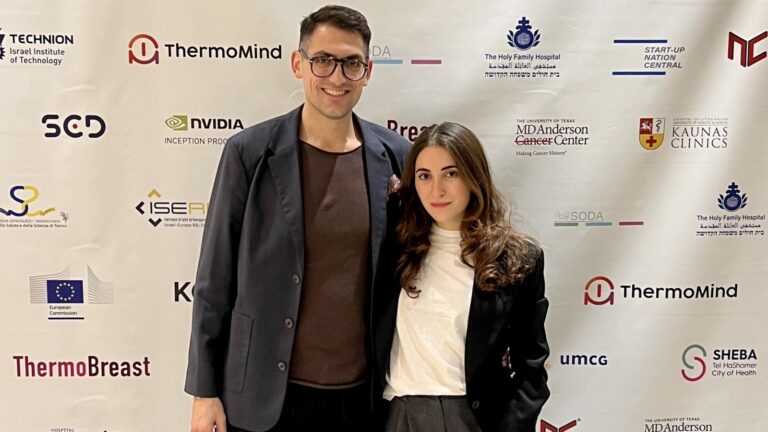
“During Covid, we saw a great need for data sharing and digitalization and wanted to do something meaningful with that. We got really excited about healthcare,” says Adamyan.
They considered various unmet medical challenges, ultimately choosing breast-cancer screening because Ayoub’s mother was a breast cancer survivor and Adamyan’s aunt was in treatment for late-stage breast cancer.
Soon a business was hatched, as well as a romance.
“Everything was in lockdown,” Adamyan recalls.
“We were in an 18th floor office and in the evening we’d order pizza, open a bottle of wine, admire the sunset and then afterwards talk about innovation. We did lots of research. We are a good match because I’m very academic and Najeeb is very business oriented.”
Moving to Israel
Ayoub was convinced that his native country would be the best place to start ThermoMind and develop its ThermoBreast screening system.
“Alone, it would be too hard for me to move to Israel but Najeeb is incredibly patriotic and insists that everything we make has to be with Israeli technology,” says Adamyan.
“He said, ‘Come with me and I’ll show you this is the place for innovation.’ And it’s true. In Israel, everything advances very fast. It’s amazing.”
In the spring of 2022, before leaving Germany, the couple formed a consortium of renowned clinical partners from 18 hospitals and research institutes in Europe, the United States and Israel.
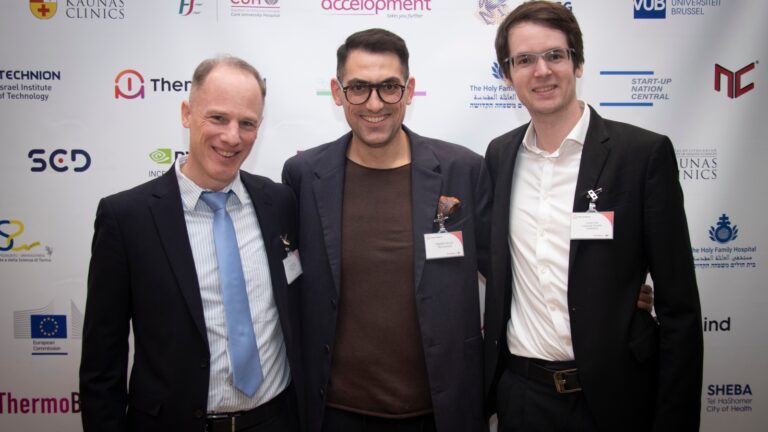
They included a representative from a European cancer patient advocacy group, too, “because we want to align our technology with a patient-centered approach,” Adamyan explains.
They discovered a grant program from Horizon Europe that seemed a perfect fit, but the deadline was only 20 days away so they incorporated quickly and applied.
“We moved to Israel on July 6, and on August 5 — when we were both sick with corona — we received word that we won 11.5 million [euros] from Horizon and got the top evaluation of 15 out of 15” on a scale measuring considering impact, excellence and implementation quality.
A safe place
Based in culturally diverse Haifa, ThermoMind employs 10 people.
“We have the best people on the planet in artificial intelligence, from Israel and outside of Israel,” says Ayoub.
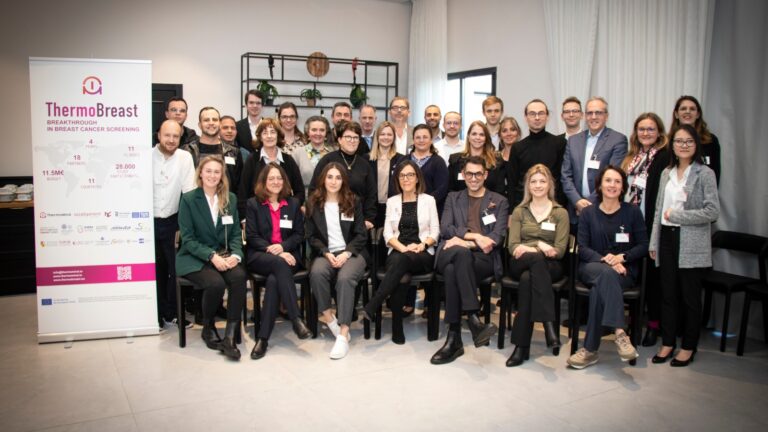
The staff is diverse, including Jewish Israelis as well as Germans and new immigrants from Ukraine.
The current civil unrest in Israel doesn’t affect them, the partners say.
“When you come to our office you are safe. Our daily life is just ThermoMind and our partners and collaborations. We have no time for politics,” says Adamyan.
“There are always challenges but we are not moving our startup from Israel,” adds Ayoub. “There is always a way to live here and to find funds.”
Adamyan adds that the company gets a lot of encouragement from Israelis.
“The culture is challenging but the people are real people and I think it makes Najeeb — and because of that, me — very proud to be making an Israeli innovation. If you make it in Israel, it’s legit.”
For information about ThermoMind, click here. See more about the ThermoBreast study here.















